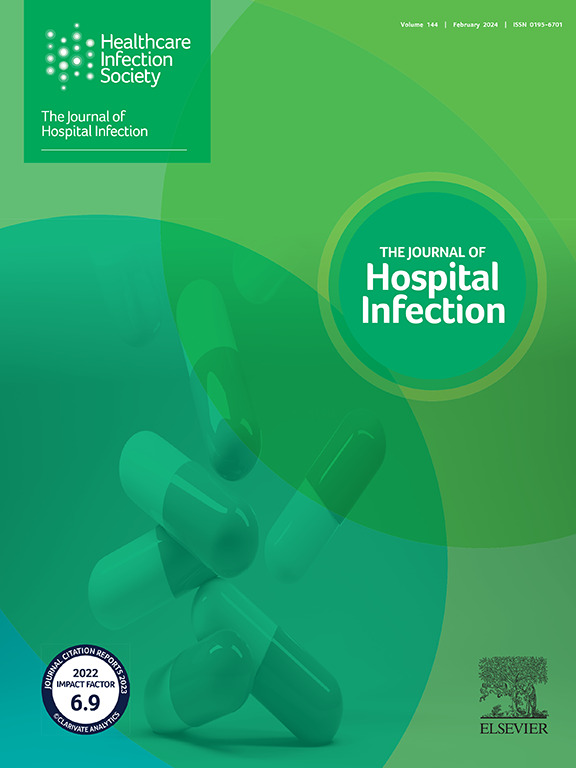The burden of ESKAPE pathogen-related hospital-acquired infections: clinical and financial perspective from a systematic review
IF 3.1
3区 医学
Q1 INFECTIOUS DISEASES
引用次数: 0
Abstract
Antimicrobial resistance (AMR) poses a significant challenge in managing hospital-acquired infections (HAIs) caused by ESKAPE pathogens. We conducted a systematic literature search in Embase, Web of Science, and PubMed for articles published between 2000 and 2023, to assess the clinical and economic burden of ESKAPE infections. The evidence covered mortality rates, length of hospital stays (LOSs), and healthcare costs, with most studies focusing on HAIs caused by meticillin-resistant Staphylococcus aureus (MRSA). These impacts varied by region, ESKAPE pathogen strain, and type of resistance. Compared with non-resistant groups, resistant ESKAPE-related HAIs were associated with nearly double the risk of death (odds ratio = 1.96; 95% confidence interval = 1.56–2.46). Resistant ESKAPE-related HAIs also resulted in significantly longer hospital LOS (P<0.001) and increased healthcare costs (P=0.047), particularly in the Asia-Pacific region. The study highlights the urgent need for comprehensive strategies and global collaboration to mitigate the impact of AMR, particularly in resource-constrained settings. Addressing these challenges can improve patient outcomes and reduce the financial burden on healthcare systems worldwide.
ESKAPE病原体相关医院获得性感染的负担:从系统评价的临床和财务角度
抗菌素耐药性(AMR)对ESKAPE病原体引起的医院获得性感染(HAIs)的管理提出了重大挑战。我们在Embase、Web of Science和PubMed进行了系统的文献检索,检索2000年至2023年间发表的文章,以评估ESKAPE感染的临床和经济负担。证据包括死亡率、住院时间(LOS)和医疗费用,大多数研究集中于耐甲氧西林金黄色葡萄球菌(MRSA)引起的HAIs。这些影响因地区、ESKAPE病原菌株和耐药类型而异。与非耐药组相比,耐药eskape相关HAIs的死亡风险几乎增加了一倍(优势比[OR] = 1.96;95%置信区间[CI] = 1.56-2.46)。顽固性eskape相关HAIs也导致医院LOS明显延长(p
本文章由计算机程序翻译,如有差异,请以英文原文为准。
求助全文
约1分钟内获得全文
求助全文
来源期刊

Journal of Hospital Infection
医学-传染病学
CiteScore
12.70
自引率
5.80%
发文量
271
审稿时长
19 days
期刊介绍:
The Journal of Hospital Infection is the editorially independent scientific publication of the Healthcare Infection Society. The aim of the Journal is to publish high quality research and information relating to infection prevention and control that is relevant to an international audience.
The Journal welcomes submissions that relate to all aspects of infection prevention and control in healthcare settings. This includes submissions that:
provide new insight into the epidemiology, surveillance, or prevention and control of healthcare-associated infections and antimicrobial resistance in healthcare settings;
provide new insight into cleaning, disinfection and decontamination;
provide new insight into the design of healthcare premises;
describe novel aspects of outbreaks of infection;
throw light on techniques for effective antimicrobial stewardship;
describe novel techniques (laboratory-based or point of care) for the detection of infection or antimicrobial resistance in the healthcare setting, particularly if these can be used to facilitate infection prevention and control;
improve understanding of the motivations of safe healthcare behaviour, or describe techniques for achieving behavioural and cultural change;
improve understanding of the use of IT systems in infection surveillance and prevention and control.
 求助内容:
求助内容: 应助结果提醒方式:
应助结果提醒方式:


